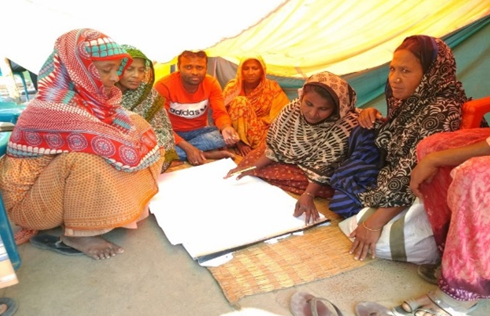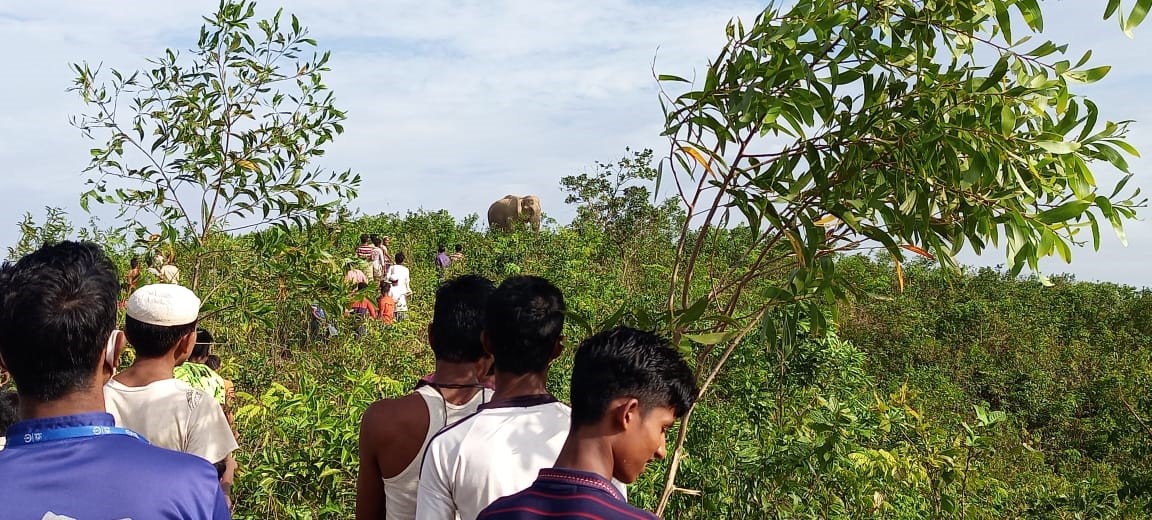Blog: Mainstreaming Meloxicam, a vulture-friendly drug
The primary reason for the recent massive decline in vulture population is the use of harmful non-steroidal anti-inflammatory drugs (NSAIDs) used as veterinary painkillers. Two of the largest pharmaceutical companies in Bangladesh have joined in the effort to conserve vultures in the country by producing vulture-friendly drugs containing Meloxicam. In this blog post, Sakib Ahmed and Haseeb Md. Irfanullah of IUCN Bangladesh write about this engagement of private sector in biodiversity conservation.
Over the last couple of years, Bangladesh has achieved some major milestones in its effort to conserve vultures. One of them is the approval of Bangladesh Vulture Conservation Action Plan (2016−2025) by the Government and the other is the banning of the harmful NSAID, Ketoprofen, for veterinary use in two Vulture Safe Zones (VSZs).
This was made possible by the Strengthening Regional Cooperation for Wildlife Protection (SRCWP) project of the Bangladesh Forest Department and IUCN, funded by The World Bank, which enabled vulture conservation in Bangladesh. Additionally, the project, which started in 2014, also monitored and protected vulture habitats in the two VSZs, established feeding stations to supply safe dead cattle to the vultures, and conducted awareness campaigns from local to national levels.
The SRCWP initiative further offered a platform to engage pharmaceutical companies in producing the safe alternative drug, Meloxicam. Realising that vulture-toxic drugs are the main reason for the mass vulture decline, pharmaceutical companies of Bangladesh are now coming forward to play an important role in saving these threatened species.
In 2015 and 2016, IUCN conducted undercover surveys to understand the status of veterinary painkillers in the markets. The surveys revealed the extensive presence of Ketoprofen. The surveyors also realised that enforcing a ban would not be enough to reduce Ketoprofen use; they would also need to increase awareness among users and vets, as well as increase the production and availability of Meloxicam.
Therefore, IUCN Bangladesh reached out to two of the largest pharmaceutical companies operating in Bangladesh, ACME Laboratories Ltd. and Reneta Limited, to help mainstream Meloxicam. Simultaneously, IUCN Bangladesh with the support of the Bangladesh Forest Department carried out awareness campaigns at local levels to promote Meloxicam as the safe alternative for veterinary use.
Results of the advocacy came when ACME decided to print a slogan in Bangla on the label of its Meloxicam-containing drug, Melvet. The slogan read: “Vultures play an important part in maintaining the balance of the environment. The use of Meloxicam in domestic animals is safe for vultures.”
Reneta, already known for its involvement in environmental causes, decided to produce its first drug containing Meloxicam. In late 2015, the vulture conservation initiative of IUCN Bangladesh provided Renata with the formula and protocol for commercial Meloxicam production. Finally, in 2017, Renata was able to produce its first Meloxicam-containing drug, Melocam.
Both companies have also taken part in vulture conservation awareness campaigns and workshops organised by IUCN Bangladesh. Representatives of ACME and Reneta were present at the workshops conducted in veterinary schools of different agricultural universities across the country.
These companies have also subsidised their Meloxicam drugs for IUCN Bangladesh. Reneta has given a 35% subsidy on Melocam, while ACME has given a 30% subsidy on Melvet. IUCN Bangladesh then distributed the drugs to around 200 local pharmacy owners and vets in both VSZs. The supplied drug is sufficient to treat around 1,500 cattle.
It is important to continue the momentum that these two pharmaceutical companies have created by engaging in biodiversity conservation. To do so, it is imperative to engage other pharmaceutical companies in producing Meloxicam. Involving other companies will also make Meloxicam more available in the market, reduce the price, and create opportunities to invest in research to further improve its effectiveness.
At the same time, the ban of Ketoprofen in VSZs must also be enforced strictly. The awareness campaigns over the past years have helped grow acceptability of Meloxicam among locals and the time to capture that interest and remove Ketoprofen from the markets for good, is now.
This blog post was contributed by Sakib Ahmed [@Sakib_A5], Programme Assistant for the project ‘Community-based Vulture Safe Zone Management in Bangladesh’ and Haseeb Md. Irfanullah [@hmirfanullah], Programme Coordinator of IUCN Bangladesh.






